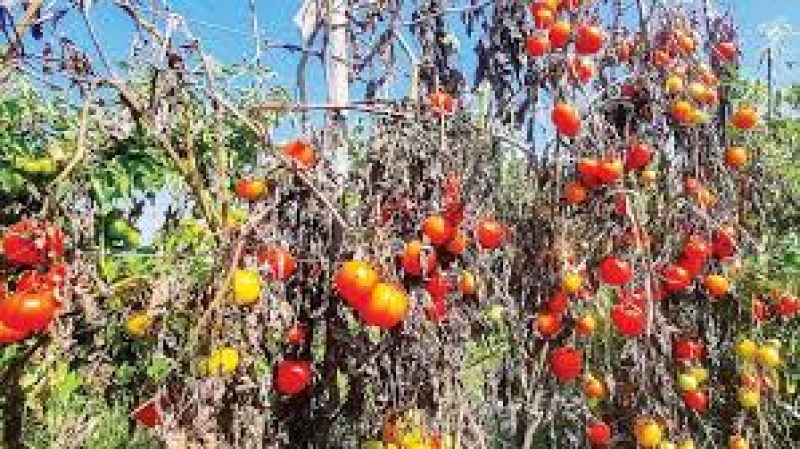- Israel Strikes Tehran with US Support Amid Nuclear Tensions |
- India Sees 9% Drop in Foreign Tourists as Bangladesh Visits Plunge |
- Dhaka Urges Restraint in Pakistan-Afghan War |
- Guterres Urges Action on Safe Migration Pact |
- OpenAI Raises $110B in Amazon-Led Funding |
Chandpur Tomato Farmers Struggle as Prices Drop

In the heart of Bangladesh’s agricultural landscape, tomato farmers in Chandpur are facing a crisis as prices plummet to unprecedented lows. What once promised a profitable season has turned into a nightmare, with tomatoes now selling for as little as Tk 3-5 per kilogram—barely enough to cover transportation costs.
In several villages, ripe tomatoes are being left to rot in the fields as farmers, unable to make a profit, abandon their crops. "Transport costs exceed the selling price, so what’s the point?" said Gias Uddin Sarkar, a farmer from Nij Chengarchar in Matlab Uttar, who planted tomatoes on 40 decimals of land but is now unable to cover even the transport costs.
Veteran farmers like Shah Alam Miji, who has farmed for over five decades, are also feeling the strain. He harvested 50 maunds of tomatoes from 20 decimals of land, but with local prices as low as Tk 3-4 per kilogram, he’s been forced to transport his produce to Chandpur city markets, selling it late into the night to make ends meet.
The price collapse is not isolated to rural areas. In Chandpur city, rickshaw-van vendors struggle to sell tomatoes at Tk 8-10 per kilogram, while quality produce in kitchen markets fetches only Tk 15-20 per kilogram. Similar trends are seen in Faridganj, where farmers like Biswajit Sutradhar and Sohel, who hoped for a profitable season, are now watching their crops being fed to cattle.
A surge in tomato cultivation this year, covering 657 hectares across Chandpur, has resulted in a bumper harvest of 15,768 metric tonnes, surpassing the expected yield. While improved soil fertility and favourable weather conditions contributed to this surplus, the abundance has led to a sharp drop in prices.
Agriculturist Mohammad Mobarak Hossain explained that while the district has no shortage of tomatoes, the glut has driven prices down. He also highlighted the lack of storage solutions for tomatoes, urging the government to invest in preservation methods to prevent such losses in the future.
As farmers in Chandpur face this devastating crisis, the need for market stabilisation and storage solutions is more urgent than ever. Without intervention, many may be discouraged from cultivating tomatoes in the future, altering the agricultural landscape of the region.

